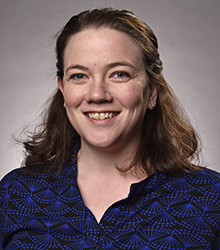 King’s College London is making a significant investment in the Department of Digital Humanities as part of an ambitious program of growth in existing and emergent research areas and expansion in student numbers across its five MA programs and the BA Digital Culture. We are seeking to recruit exceptional candidates to join the Department no later than 1st September, who can enthuse and inspire our students, conduct world-leading research, and contribute to the life and reputation of the Department through academic leadership and public engagement.
King’s College London is making a significant investment in the Department of Digital Humanities as part of an ambitious program of growth in existing and emergent research areas and expansion in student numbers across its five MA programs and the BA Digital Culture. We are seeking to recruit exceptional candidates to join the Department no later than 1st September, who can enthuse and inspire our students, conduct world-leading research, and contribute to the life and reputation of the Department through academic leadership and public engagement.Professor (1 opening) – Candidates will be scholars of international standing with an outstanding research profile and publications record, including experience of successful grant capture from high-quality funders, and be able to provide inspiring and innovative teaching and supervision for students. The successful applicant will provide leadership across the full range of the Department’s activities, and be able to mentor and motivate staff at all levels. With a track record of successful partnerships, collaborations, and external networks, the post-holder will play a leading role in the strategic development and profile of the digital humanities at King’s and internationally.
Senior Lecturer (up to 3 openings) – Candidates will be scholars of international standing with a strong research and publication record and evidence of or potential for research income generation. The successful applicants will play a key role in leading work across the Department to enhance our research strengths, to develop new and emergent research areas, to innovate in teaching practice and pedagogy, and to contribute to our underpinning values of co-research and collaboration.
Lecturer (up to 4 openings) – Candidates will be on their way to becoming scholars of international standing with a research and publication trajectory that illustrates this ambition. They will contribute to the further development of the Department’s research strengths, provide high-quality teaching and supervision, and work collaboratively within the Department and beyond.
Also recruiting in the following areas:
* Digital Asset Management, Curation, and Preservation, including: digital asset and media management fundamentals; digital rights management; information ethics; policy and strategy
* Critical Humanities Infrastructure studies, including: critical technical practice; digital information and data infrastructures; participatory architectures; open and closed data; digital ecosystems
* Digital Making in the Humanities, including: programming (as a creative process); interaction design; interface studies; maker culture
* Digital Methods in the Arts and Humanities, including one or more of: cultural and social analytics; advanced humanities computational methods; network analysis, literacies, and effects; qualitative methods
* Digital Economy, including: digital industries and internet cultures; consumers and audiences; data and marketing, advertising, brands and branding
* Digital Culture and Society, including: global cultures; migration/mobility; ethnicity; gender; visual arts and culture
* Theories of Digitality, including: theories of new media; critical debates in digital culture; algorithmic culture; the foundations of digital culture
Full position posting and application details
To apply for these posts, please go to https://www.hirewire.co.uk/HE/1061247/MS_JobDetails.aspx?JobID=75212 and register to download and submit the specified application form. Please indicate on the application form which area you are interested in and at what level.
For an informal discussion to find out more about the roles please contact Professor Sheila Anderson, Head of Department, at sheila.anderson@kcl.ac.uk

 Yale University
Yale University The
The 
 “I am a second-year PhD student in the
“I am a second-year PhD student in the 
 Emily McGinn
Emily McGinn

 The Digital Scholarship Editor is a grant-funded position through the Andrew W. Mellon Foundation and is designed to extend Brown’s capabilities as a central force in advancing new forms and methods of scholarly communication. The Digital Scholarship Editor plays an important role in bringing together key technological, organizational, and academic resources across the campus to generate a broader, more effective structure within the University to support the creation, cultivation, evaluation, dissemination, and preservation of new forms of faculty-driven digital scholarly projects intended for publication. The position is currently funded until the end of 2019, with the possibility of renewal.
The Digital Scholarship Editor is a grant-funded position through the Andrew W. Mellon Foundation and is designed to extend Brown’s capabilities as a central force in advancing new forms and methods of scholarly communication. The Digital Scholarship Editor plays an important role in bringing together key technological, organizational, and academic resources across the campus to generate a broader, more effective structure within the University to support the creation, cultivation, evaluation, dissemination, and preservation of new forms of faculty-driven digital scholarly projects intended for publication. The position is currently funded until the end of 2019, with the possibility of renewal.